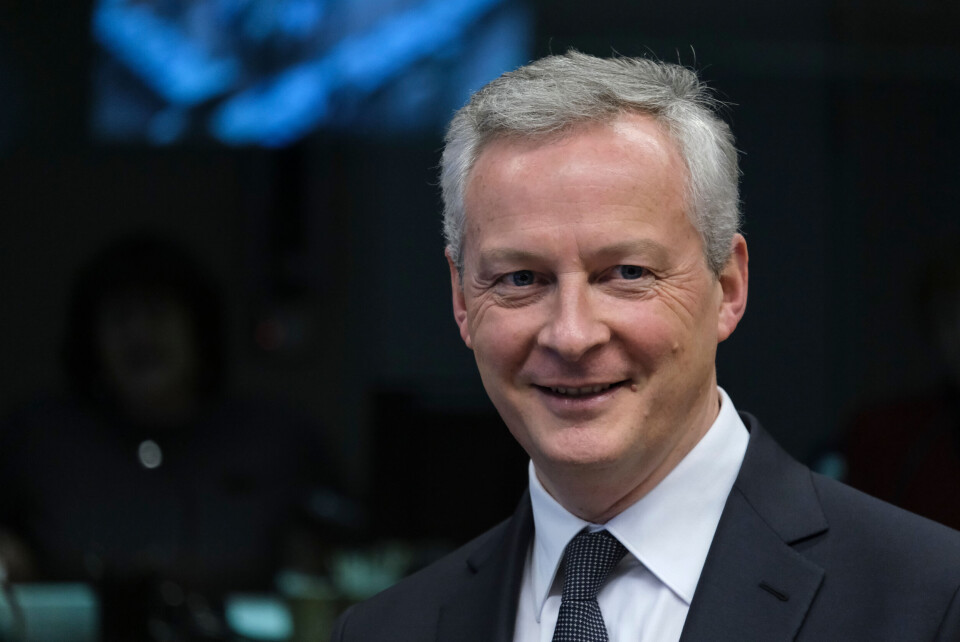-
More than 5,000 French communes use AI to identify poor rubbish sorting
Badly-sorted rubbish can cost millions so communes are turning to high-tech solutions
-
Tax on well-off retirees under consideration for 2026 budget
‘Nothing is off the table’ when it comes to finding €40 billion in savings says Labour Minister
-
Nice airport records passenger boom as tourists flock to city
Airport figures exceeded the pre-Covid record last year, with US visitors significant contributors
French economy grew 7% in 2021: fastest rate in 52 years
The finance minister described it as a ‘spectacular rebound’ after the economy shrank by 8% in 2020. France’s economic growth overtook UK’s in second half of year

France’s gross domestic product (GDP) grew 7% in 2021, a rate which has not been seen since 1969.
This follows an 8% slump in 2020, caused by the Covid pandemic, according to newly published figures from France’s national institute of statistics, Insee.
Read more:Economists heap praise on France for its Covid tactics
In the fourth quarter of 2021, the French economy grew by 0.7%, faster than expected, and Insee stated that this year it “clearly overtook” its pre-pandemic level of growth, especially between July and September (quarter three), when the rate of expansion was 3.1%.
Insee had predicted that the economy would grow by 6.7%, a similar figure to that suggested by Banque de France.
“This is a spectacular rebound,” Finance Minister Bruno Le Maire said on France 2. “It erases [the effect of] the health crisis.
7 % de croissance en 2021, c'est un résultat spectaculaire ! Un des meilleurs de la zone euro !
— Bruno Le Maire (@BrunoLeMaire) January 28, 2022
Nous le devons aux Français, aux entrepreneurs, aux salariés et à notre politique économique mise en place depuis 2017. #Les4V pic.twitter.com/Dfsnz7Vspx
“This reflects the mobilisation of employees, workers, business owners, shopkeepers, the self-employed, of all those people in France who rolled up their sleeves. Behind these spectacular figures are jobs, factories and businesses.
“This also proves that the government’s economic policy is effective.”
Mr Le Maire added that “Europe has coped very well,” thanks to the “coordination” of the EU’s 27 member states.
France’s economic recovery has been aided by consumers: household spending rose by 5.6% in the summer compared to earlier in the year.
Money spent on eating out and hospitality is currently 1.8% above 2019 levels, and overall household expenditure was exactly the same last quarter as it was two years ago.
Growth was also propelled by a significant increase in the production of goods and services, which sat at 7.4% after falling by 8.5% in 2020, even though its level remains below that of 2019.
In addition, unemployment rates fell in 2021, with the number of jobseekers on Pôle emploi’s books declining by half a million people over the course of the year, a record amount.
Insee’s director general, Jean-Luc Tavernier, predicted that growth would continue in 2022 but that “the Omicron wave, the question of public deficits and difficulties with recruiting” workers were uncertainties needing to be addressed.
Mr Le Maire also conceded that inflation is “a risk” to the economy, comparing the current rise in fuel prices with the 1973 oil crisis. However, this time, he claimed that: “We will not see the same consequences.”
He also said that current inflation rates made calls for salary increases “legitimate” but argued that “the State has done its bit,” and “it is businesses’ turn” to help employees benefit from the economy’s growth.
Read more:Workers strike across France calling for pay rises amid inflation
Faster growth than the UK
Figures regarding the UK’s fourth quarter growth rate have not yet been released, but following the third quarter the rate of economic expansion was below Office for national statistics forecasts.
The overall growth rate for 2021 was expected to be 6.8%, after a 9.4% drop in 2020. Prime Minister Boris Johnson said during Prime Minister’s Questions this month that “We now have [...] the fastest growing economy in the G7,” but this is only if you consider data for the whole year.
Focusing exclusively on the third quarter, the UK placed fifth and France placed first.
The UK economy returned to pre-pandemic levels in November (fourth quarter), while France and the US reached this point in the summer.
The US recorded an economic growth rate of 5.7% in 2021, the strongest since 1984, the latest estimates suggest.
Related articles
Key points of Macron’s multi-billion euro investment plan for France
France in top five for foreign investment
























